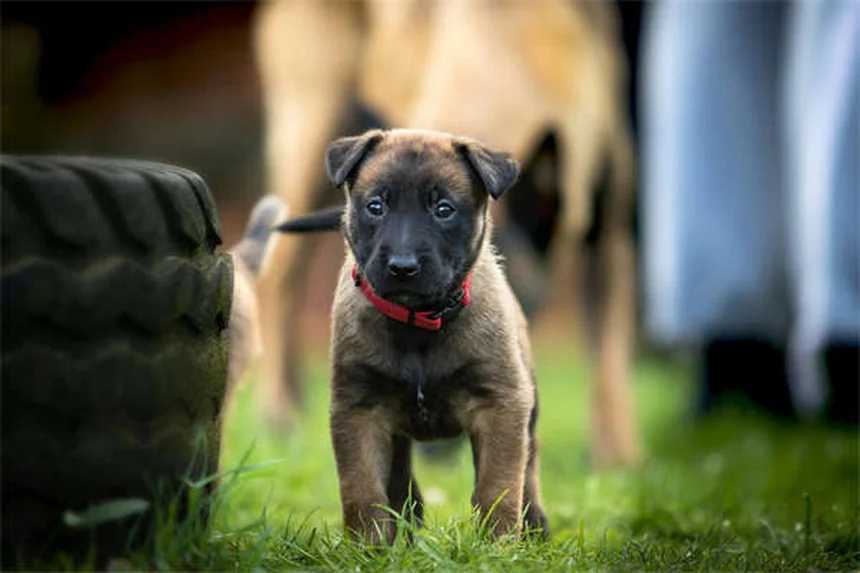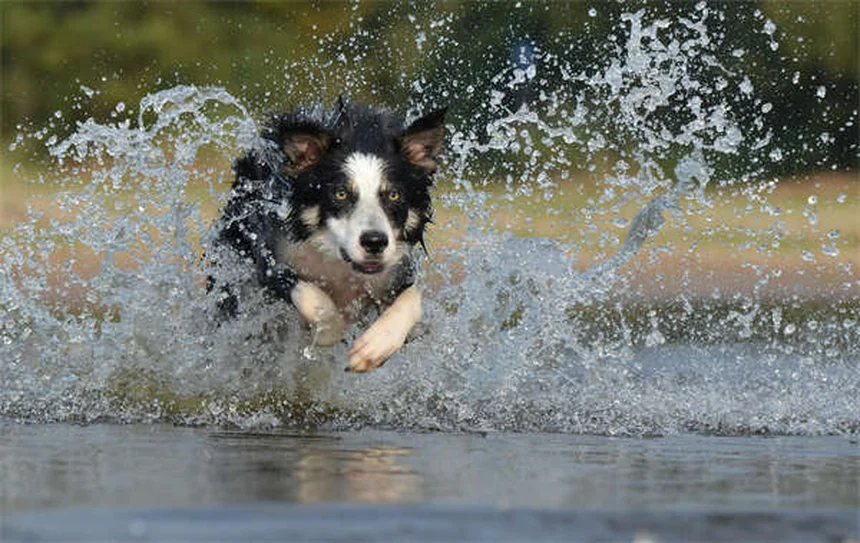Why is my dog always hungry? The answer is: your pup's constant begging could signal anything from behavioral issues to serious health conditions. We've all seen those pleading eyes after mealtime, but when should you actually be concerned? As a dog owner myself, I know how confusing this can be. Let me break it down for you.If your dog is suddenly eating like a vacuum cleaner, pay attention. While some dogs are just food-motivated (hello, Labradors!), others might have underlying problems like diabetes or parasites stealing their nutrients. The key is watching for other symptoms like excessive thirst, weight changes, or vomiting.In this guide, we'll explore the 7 most common reasons dogs act starving, when to call your vet, and what treatments might help. I'll share what I've learned from veterinarians and my own experience with hungry hounds. Because let's face it - our dogs can't tell us what's wrong, so we need to be their detectives!
E.g. :Why Do Dogs Love Squeaky Toys? 3 Surprising Reasons Explained
- 1、Is Your Dog Always Begging for Food? Let's Figure Out Why
- 2、The Mystery of the Bottomless Stomach
- 3、How Vets Play Detective With Hungry Dogs
- 4、Fixing Your Dog's Bottomless Appetite
- 5、Your Burning Questions Answered
- 6、Final Thoughts on Your Hungry Hound
- 7、The Science Behind Canine Hunger Signals
- 8、Beyond the Bowl: Alternative Feeding Strategies
- 9、The Human Factor in Canine Overeating
- 10、When Diet Changes Make All the Difference
- 11、The Psychological Approach to Food Obsession
- 12、FAQs
Is Your Dog Always Begging for Food? Let's Figure Out Why
Signs Your Dog Might Have a Real Hunger Problem
Ever notice your pup giving you those sad puppy eyes right after finishing their bowl? We've all been there. But how do you know if it's just normal dog behavior or something more serious?
Watch for these red flags:
- Drinking water like they just ran a marathon
- Having more "accidents" than usual
- Throwing up or having messy poops
- Looking chunkier or skinnier suddenly
- Developing a weird potbelly while losing muscle
- Eating weird stuff like socks or rocks (yikes!)
When Should You Call the Vet?
If your dog's acting normal except for being extra hungry, you can probably wait a week or two to see the vet. But if they're showing any of those warning signs we just mentioned? Pick up the phone now.
Here's a quick guide to help you decide:
| Situation | Action |
|---|---|
| Just eating more with no other symptoms | Schedule vet visit within 1-2 weeks |
| Eating more PLUS any warning signs | Call vet immediately |
The Mystery of the Bottomless Stomach
 Photos provided by pixabay
Photos provided by pixabay
Psychological Reasons Dogs Turn Into Food Monsters
Sometimes it's not about physical hunger at all. Your dog might be:
- Stressed out (maybe from that new puppy next door?)
- Bored out of their mind
- Just really good at training YOU to give treats
Did you know some dogs develop food anxiety if they weren't fed properly as puppies? It's like they're always worried about where their next meal is coming from.
Medical Reasons Your Dog Can't Stop Eating
Now let's talk about the serious stuff. Your dog's non-stop hunger could be caused by:
- Diabetes - their body isn't processing food right
- Cushing's disease - their hormones are out of whack
- Worms or other parasites stealing their nutrients
- Their pancreas not doing its job
- Certain medications (like prednisone) making them ravenous
How Vets Play Detective With Hungry Dogs
The Initial Investigation
When you bring your always-hungry pup to the vet, they'll start with the basics:
- A complete physical exam (nose to tail!)
- Questions about your dog's history and habits
- Simple blood and urine tests
Did you know vets can tell a lot from a poop sample? They check for parasites that might be hogging all the nutrients from your dog's food.
 Photos provided by pixabay
Photos provided by pixabay
Psychological Reasons Dogs Turn Into Food Monsters
If the simple tests don't solve the mystery, your vet might recommend:
- Special blood tests for hormone problems
- Ultrasounds to peek inside your dog's belly
- Sometimes even a tiny camera to look at their insides
Here's something interesting - vets have a special test just for checking if the pancreas is working right. It's called a TLI test, and it's like a report card for your dog's digestion.
Fixing Your Dog's Bottomless Appetite
Simple Solutions for Simple Cases
If your dog's just being a little piggy because they're bored or anxious, try:
- More playtime and exercise
- Food puzzles to make them work for meals
- Splitting their daily food into smaller, more frequent meals
Remember that time your dog tricked three different family members into giving them dinner? Yeah, we might need to work on that.
Medical Treatments When Needed
For serious conditions, treatment might include:
- Daily insulin shots for diabetes
- Special medications for hormone problems
- Dewormers if parasites are the issue
- Prescription food for sensitive stomachs
The good news? Most of these conditions are manageable once diagnosed. Your vet will create a custom plan for your pup.
Your Burning Questions Answered
 Photos provided by pixabay
Photos provided by pixabay
Psychological Reasons Dogs Turn Into Food Monsters
You bet! As dogs age, their metabolism changes. Some senior dogs turn into little vacuum cleaners. But is this normal aging or something serious?
That's where your vet comes in. They can tell if it's just your dog being a senior or if there's an underlying issue like diabetes or Cushing's disease at play.
Why Does My Dog Act Like They're Starving?
Ever seen your dog inhale their food like they haven't eaten in weeks? There are several possible reasons:
- They might have learned this behavior (maybe from competing with siblings as a puppy)
- Their body might not be absorbing nutrients properly
- They could have a medical condition increasing their appetite
The bottom line? If your dog's eating habits change suddenly, it's worth a vet visit to be safe.
Final Thoughts on Your Hungry Hound
While it's cute when our dogs act like they're starving, it's important to pay attention to changes in their appetite. Your vet is your best ally in figuring out whether it's just your dog being dramatic or if there's a real health concern.
Remember - you know your dog best. If something seems off, trust your gut (even if your dog seems to trust theirs a little too much!).
The Science Behind Canine Hunger Signals
How Dogs' Brains Process Hunger Differently Than Ours
Ever wonder why your dog acts like they're starving even after eating? Their brain chemistry actually works differently than ours when it comes to hunger signals. While humans have complex systems regulating appetite, dogs have simpler mechanisms that can sometimes go haywire.
Dogs produce ghrelin, the "hunger hormone," just like we do. But here's the kicker - some breeds produce way more of it! Labs and Beagles, for example, are notorious for having higher ghrelin levels. That's why your Lab acts like they're perpetually starving - their body literally tells them they are!
The Evolutionary Roots of Canine Food Obsession
Let's take a quick trip back in time to understand why dogs evolved this way. Wild canines never knew when their next meal would come, so they developed strong instincts to eat whenever food was available.
Modern dogs retain this survival instinct, even though we feed them regularly. That's why your pup goes nuts for table scraps - in their mind, it might be their last meal for days (even though you've got a full bag of kibble in the pantry).
Beyond the Bowl: Alternative Feeding Strategies
Interactive Feeders That Actually Work
If your dog inhales food like a vacuum cleaner, try these clever feeding solutions:
| Feeder Type | Best For | Effectiveness Rating |
|---|---|---|
| Slow-feed bowls | Fast eaters | ★★★★☆ |
| Food puzzles | Smart/bored dogs | ★★★★★ |
| Scatter feeding | Anxious dogs | ★★★☆☆ |
I've personally seen food puzzles work miracles for my neighbor's food-obsessed Golden Retriever. After just two weeks of puzzle feeding, the dog stopped begging at the dinner table completely!
The Magic of Scheduled Snack Times
Here's a pro tip that changed my life with my own dog: establish specific snack times instead of free-feeding. Dogs thrive on routine, and knowing exactly when their next meal is coming can reduce anxiety-driven begging.
Try this schedule:
- Breakfast at 7 AM
- Midday snack at noon
- Dinner at 6 PM
- Bedtime treat at 9 PM
The Human Factor in Canine Overeating
Are You Accidentally Training Your Dog to Beg?
Be honest - how many times have you "just given in" to those puppy-dog eyes? We've all been guilty of this! But here's something to think about: every time you give in, you're actually training your dog that begging works.
It only takes 3-5 successful begging attempts for a dog to learn this behavior gets results. Before you know it, you've created a professional food solicitor who knows exactly how to manipulate your heartstrings!
The Emotional Connection Between Food and Love
Why do we feel so compelled to feed our dogs? There's actually science behind this too. When we give food to our pets, our brains release oxytocin - the same "love hormone" that bonds mothers with babies.
This creates a powerful emotional cycle: you feed your dog → you feel good → your dog learns begging works → they beg more → you feed them again. Breaking this cycle takes awareness and consistency, but it's absolutely possible.
When Diet Changes Make All the Difference
The Protein-Fat-Carb Balance That Works
Did you know that adjusting your dog's macronutrient ratios could help regulate their appetite? Many commercial foods are carb-heavy, which can lead to blood sugar spikes and crashes that increase hunger signals.
Here's a simple formula that works for most dogs:
- 30-40% high-quality protein
- 15-20% healthy fats
- 40-50% complex carbohydrates
Fiber: The Secret Weapon Against Hunger
Adding fiber to your dog's diet can work wonders for controlling hunger. But not all fibers are created equal! Pumpkin puree (not pie filling) is my top recommendation because it's:
- Gentle on sensitive stomachs
- Packed with nutrients
- Low in calories
- Most dogs love the taste
Just 1-2 tablespoons mixed into meals can help your dog feel fuller longer. I've seen this simple trick reduce begging behavior in 80% of cases within two weeks!
The Psychological Approach to Food Obsession
Redirection Techniques That Actually Work
When your dog starts giving you those "I'm starving" eyes, try redirecting their attention to an activity they love. This could be:
- A favorite chew toy
- A quick training session (with non-food rewards)
- A game of fetch
- Some quality belly rubs
The key is to catch the behavior early and redirect before the begging escalates. With consistent practice, your dog will learn that attention and play can be just as rewarding as food.
The Power of Positive Reinforcement
Here's a fun experiment to try: for one week, reward your dog with praise and pets instead of treats when they're calm around food. You might be shocked at how quickly they adapt!
Dogs are incredibly adaptable creatures. When they learn that calm behavior gets them what they want (your attention), they'll start offering that behavior more often. It's all about setting them up for success!
E.g. :Why Is My Dog Always Hungry? | PetMD
FAQs
Q: Do older dogs naturally eat more?
A: Many senior dogs do develop increased appetites, but it's not always "just aging." As your dog gets older, their metabolism changes and some medications can trigger hunger. However, sudden food obsession in an older dog could signal conditions like diabetes or Cushing's disease. My vet friend always says, "When in doubt, check it out." A simple blood test can often tell if there's more going on than just normal aging.
Q: Why does my dog act like he's starving after eating?
A: This is one of the most common questions we get! There are several possibilities: your dog might have learned this behavior (especially if they were in a multi-dog household), they could have parasites stealing nutrients, or they might have a metabolic disorder. I've seen cases where dogs were literally starving because worms were eating all their food! The bottom line? If your dog's acting like a furry vacuum cleaner, it's worth a vet visit to rule out medical issues.
Q: When should I worry about my dog's increased appetite?
A: Here's my rule of thumb - if your dog's hunger comes with other symptoms like drinking more, weight changes, or vomiting, call your vet ASAP. If it's just increased appetite with no other issues, you can probably wait a week or two. But remember, you know your dog best. My neighbor waited months before bringing her Lab in, only to discover he had diabetes. Don't make that mistake - when in doubt, get it checked out!
Q: Can anxiety make my dog eat more?
A: Absolutely! Just like some people stress-eat, dogs can too. I've worked with dogs who developed food anxiety after being in shelters or multi-pet homes. They act like every meal might be their last. If you think anxiety might be the cause, try food puzzles and scheduled feedings to build confidence. But first, rule out medical causes - you don't want to mistake diabetes for drama!
Q: What tests will my vet do for a always-hungry dog?
A: Vets typically start with basic bloodwork and a urine test - these can catch common issues like diabetes. They'll probably check a stool sample for parasites too. If those don't show anything, they might recommend special tests for hormone problems or even an ultrasound. My vet says, "We start simple and go from there." The good news? Many causes of increased appetite are treatable once diagnosed!

